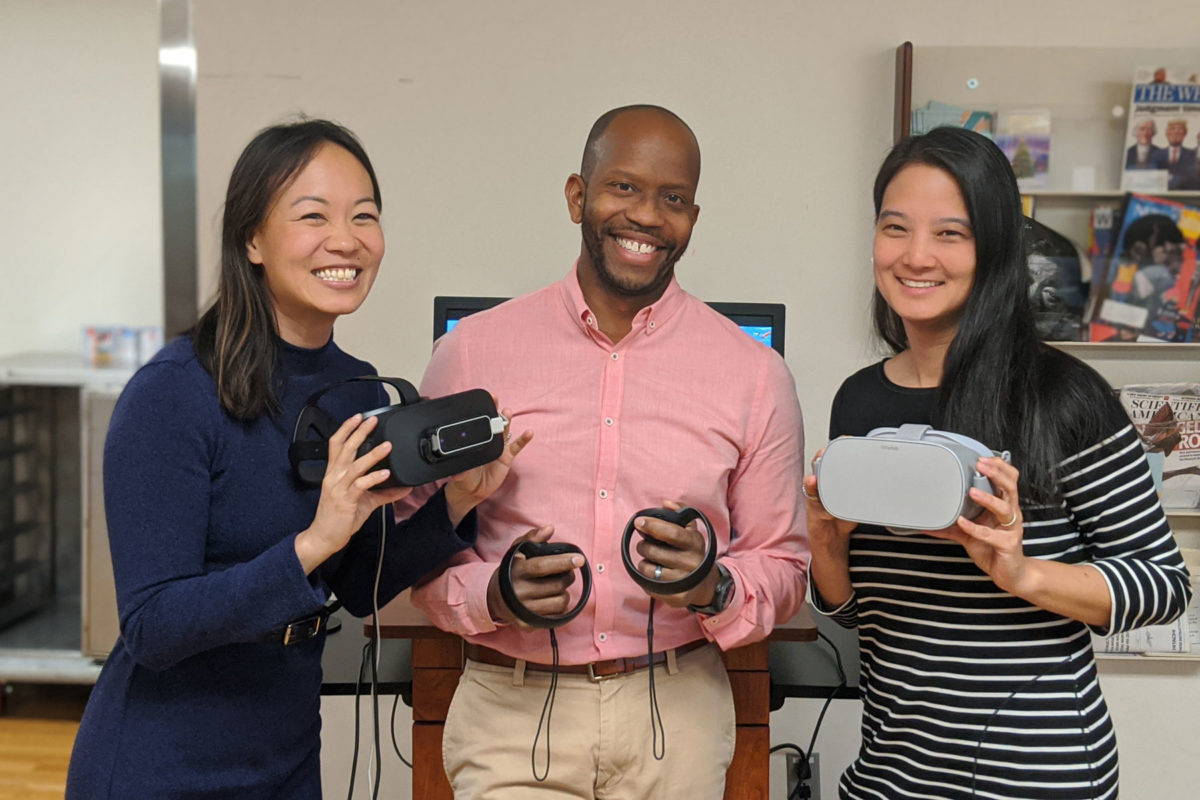A trio of faculty members explore how VR can help combat neurological diseases
August 4, 2020
USC’s Sook-Lei Liew, Judy Pa and James M. Finley are researching the benefits of virtual reality for patients with Alzheimer’s disease, Parkinson’s disease or stroke.
Chan in the Media Faculty Health and Wellness Research Technology
By Chandrea Miller / USC Today
From left, Sook-Lei Liew, James M. Finley and Judy Pa in the USC SMART-VR Center. (Photo courtesy of Sook-Lei Liew)
They’ve been called one of the most junior teams to lead such a high-profile USC collaboration.
“I’m not sure if this is good or bad,” said Sook-Lei Liew of the USC Mark and Mary Stevens Neuroimaging and Informatics Institute. “We took it as a compliment,” she added, meaning Liew, her colleague Judy Pa and James M. Finley of the USC Division of Biokinesiology and Physical Therapy.
These three USC faculty members are working together to solve the unsolvable and think the unthinkable in an effort to combat the world’s most insidious and debilitating neurological diseases: Alzheimer’s disease, Parkinson’s disease and stroke.
They conduct their cutting-edge research at the USC SensoriMotor Assessment and Rehabilitation Training in Virtual Reality (SMART-VR) Center. It’s a multidisciplinary center that brings together world-class investigators across movement science, engineering, neuroscience and rehabilitation to study and develop virtual reality interventions for neuro-rehabilitation.
Liew, one of the center’s founders, says her research on stroke aims to personalize treatment because recovery varies greatly from person to person.
“To do this, we’ve been using big data approaches to make models of stroke recovery that account for individual differences across patients based on the individual’s demographics, like age, sex and how long it’s been since stroke,” she said. “From that information, we hope to be able to form reliable predictive models of recovery where, ultimately, you could read someone’s brain scan and get a prognosis for their likely trajectory and how they might respond to different therapies.”
Read the full article at USC Today.
⋯






